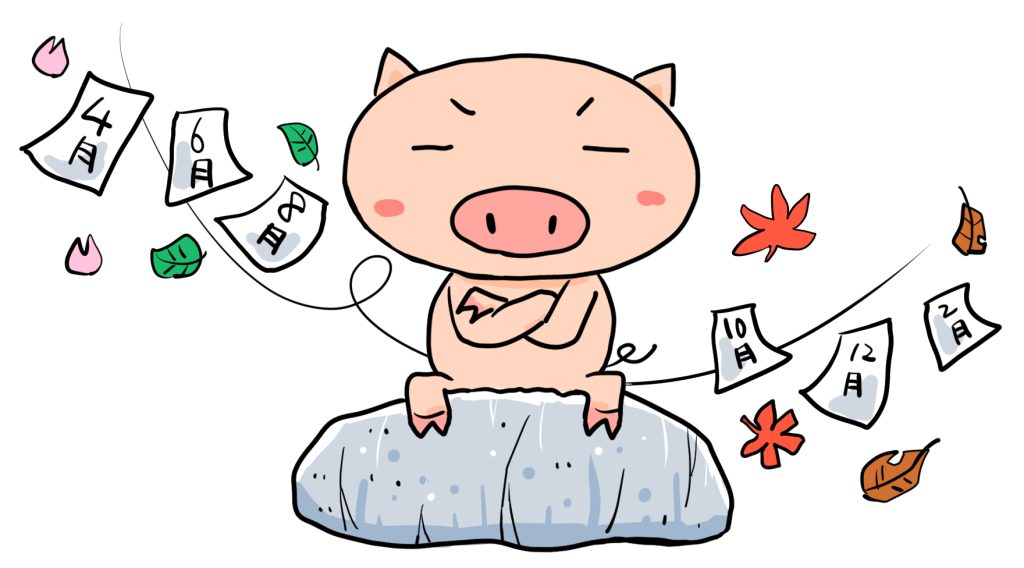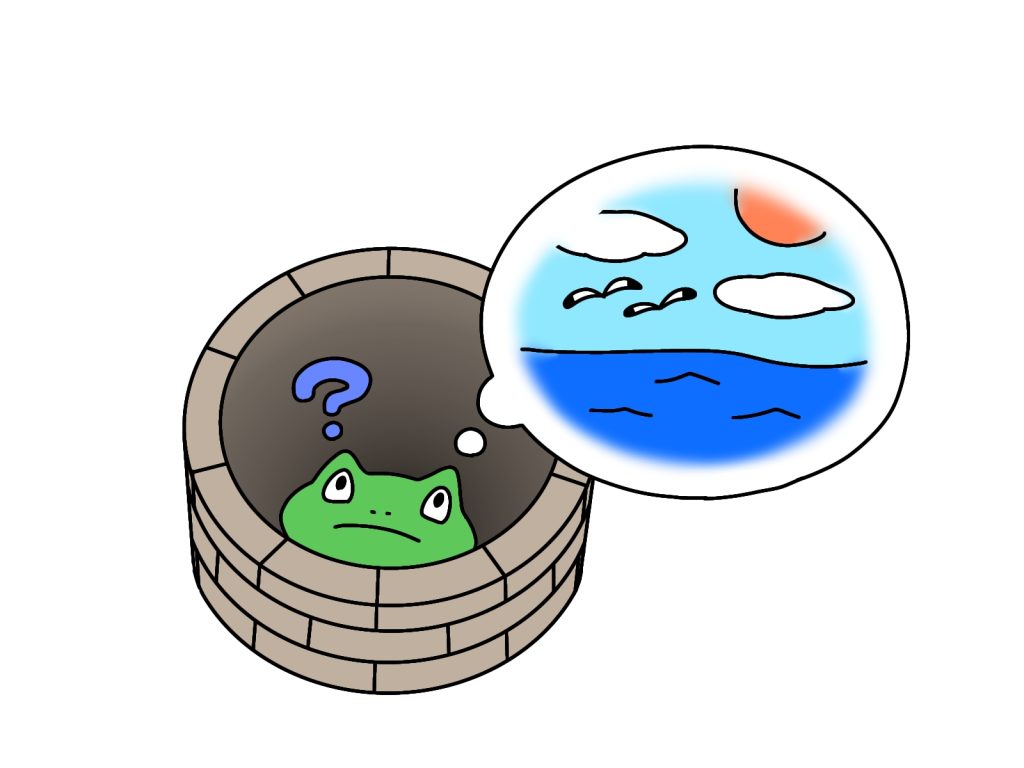Hello everyone! In this time, we will explore some intriguing Japanese proverbs. Every country has proverbs, and they play a vital role in conveying the culture and values behind the language. For foreigners, learning Japanese proverbs can be a key to deeply understanding the culture. Let’s dive into some interesting Japanese proverbs.
proverbs
- “Ishi no ue ni mo san nen” (石の上にも3年):Stay 3 years on a rock
- “I no naka no kawazu taikai o shirazu” (井の中の蛙 大海を知らず):A frog in a well does not know the ocean
- “Deru kui wa utareru” (出る杭は打たれる):The nail that sticks out gets hammered down
- “Saru mo ki kara ochiru” (さるも木から落ちる):Even monkeys fall from trees
- “Tade kuu mushi mo sukizuki” (蓼食う虫も好き好き):There are some insects which eat “Tade (bitter plants)” in spite others don’t.
- “Nanakorobi yaoki” (七転び八起き):Fall seven times, get up eight
1.”Ishi no ue ni mo san nen” (石の上にも3年):3 years on a rock
This proverb means that if you persevere, you will eventually achieve something. In Japan, endurance and patience are highly valued. This proverb encourages effort and perseverance, suggesting that if you stick with something for three years, you will gain something from it.
A negative counterpart is the four-character idiom “mikka bouzu” 「3日坊主」(a monk for three days), which mocks those who quickly lose interest. Japan has many expressions involving the number three for some reason.
Example: “Are you really going to quit school? They say ‘Ishi no ue ni mo san nen,’ so why not try a bit longer? You might gain something.”
2.”I no naka no kawazu taikai o shirazu” (井の中の蛙 大海を知らず):A frog in a well does not know the ocean
This proverb is used to describe people who think in a narrow perspective. A frog in a well does not know the vastness of the ocean, meaning it can only judge things from its limited viewpoint. It emphasizes the importance of having a broad perspective and considering multiple viewpoints.
Example: “You might end up like ‘a frog in a well’ if you don’t broaden your horizons. It might be good for you to attend that university to see more of the world.”
3.”Deru kui wa utareru” (出る杭は打たれる):The nail that sticks out gets hammered down
This proverb expresses the difficulty of self-assertion or expressing differing opinions in Japan. Japanese society tends to value harmony and group cohesion over individuality. This proverb reflects a culture that prioritizes harmony with others.
A related but non-proverbial expression is “kuuki wo yomu” (to read the air), meaning to sense the atmosphere and refrain from making inappropriate remarks or actions.
4.”Saru mo ki kara ochiru” (さるも木から落ちる):Even monkeys fall from trees
This proverb means that everyone makes mistakes or fails at times, even the most skilled people. It underscores the importance of accepting failures and learning from them.
A similar proverb is “buta mo odatera ki ni noboru” (even a pig can climb a tree if flattered), which contrasts by suggesting that encouragement can boost performance. It teaches that flattery or praise can sometimes help others perform better.
Example: “It seems he scored full marks on the test this time. ‘Even a pig can climb a tree if flattered.'” Note: This proverb also serves as a caution against excessive flattery or pampering.
5.”Tade kuu mushi mo sukizuki” (蓼食う虫も好き好き):There are some insects which eat “Tade (bitter plants)” in spite others don’t.
This proverb means that preferences and values vary from person to person. Tade (smartweed) is a bitter plant, but there are insects that like eating it, symbolizing that taste and choices differ among individuals.
A similar proverb is “juunin toiro” (ten people, ten colors), meaning that each person has their own preferences and opinions, highlighting the uniqueness of each individual.
6.”Nanakorobi yaoki” (七転び八起き):Fall seven times, get up eight
This proverb emphasizes the importance of resilience and perseverance. It teaches that facing challenges and continuously striving despite failures will lead to success.
Example: “Despite experiencing a significant setback, he embraced the spirit of ‘nanakorobi yaoki’ and challenged himself again.”
Conclusion
Japanese proverbs are invaluable for understanding not just the language but also the culture and values of Japan. By learning these fascinating proverbs, you can gain insights into the thoughts and behaviors of Japanese people.
Additionally, Japanese proverbs often reflect the importance of harmony within a group, a trait rooted in the agricultural origins of Japanese society. However, these tendencies are gradually changing in modern times.
At NILS Japanese Language School, you can learn many more Japanese proverbs. Explore the depth of Japanese culture through its proverbs!
↓↓Please click here for more information and new update!↓














